What do the acronyms ACTS & PROVE stand for?
ACTS
Assume every firearm is loaded.
IF you pick up a firearm you will always assume it's loaded!)
Control the muzzle direction at all times.
IF you pick up a firearm, ensure you always control the muzzle direction and keep it pointed in the SAFEST available direction.
What is the safest available direction? Each situation is different.
IF you are standing on concrete, pointing downwards would be unsafe due to the possibility of ricochets.
IF you are near water, that direction could be unsafe due to the possibility of ricochets.
IF you are near rocks, that direction could be unsafe due to the possibility of ricochets.
IF you are near other, people or animals, that direction could be unsafe due to the possibility of ricochets.
IF there is anything overhead, pointing upwards could be unsafe.
Remember: When ever a firearm is in your hands, it's your responsibility to ensure you are acting in the safest possible manner.
Trigger finger must be kept off the trigger and out of the trigger guard.
IF you pick up a firearm, ensure you keep your finger off the trigger, so that you don't accidentally pull it.
IF you pick up a firearm, ensure you keep your finger out of the trigger guard, to once again ensure you can't accidentally pull the trigger.
See that the firearm is unloaded - PROVE it safe.
IF you pick up a firearm, you will ensure you PROVE it safe
PROVE
Point the firearm in the safest available direction.
Remember the safety concerns above about selecting the correct direction in each unique circumstance.
Remove all ammunition.
If the firearm has a removable magazine, ALWAYS remove it first!
Scenario: Assume the previous user left a loaded magazine in the firearm. When you cycle the action to remove the ammunition it's possible that a round will be loaded in the chamber. If the firearm trigger group was faulty or you accidentally touched the trigger, the firearm could accidentally fire.
Observe the chamber.
The chamber is the part of the barrel closest to you. This is where the ammunition cartridge will be seated in preparation for firing.
Verify the feeding path.
The path between the ammunition source (example: magazine) and the chamber. If the chamber is empty, and the magazine is empty but you failed to check the feeding path, as you cycle the action you could still accidentally load a round into the chamber.
Examine the bore.
This step MUST be completed as the last step. Doing this in any other order WILL result in injury or death!
Once you have completed the previous steps of PROV, you will examine the bore in preparation for firing.
What should I be looking for and why? If there are any obstructions in the barrel such as rocks, or a squib round
A squib round is possible in all firearms. They are most often caused by negligence in the powder loading process (insufficient or no powder load), or a failure of the primer to ignite the powder at all. The bullet is fired, but remains somewhere in the barrel. Firing a second shot may cause the barrel to burst causing injury or death.



